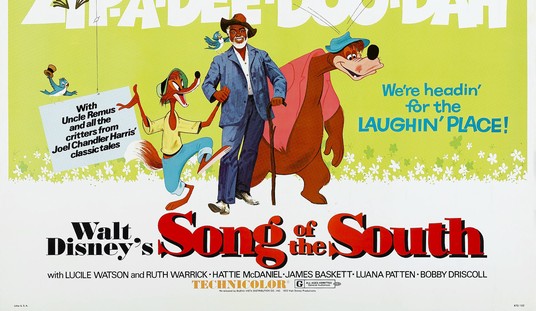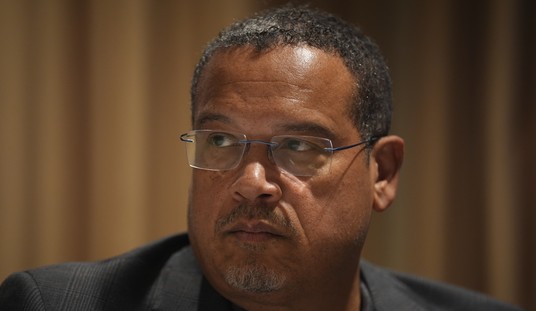Sure, the schools have gotten more liberal in recent decades, but California is on the verge of a Great Leap Forward. The state’s Education Department has issued an “Ethnic Studies Model Curriculum” and it’s too much even for the liberal Los Angeles Times. The ethnic studies class would indoctrinate more than educate, and the proposal is chock-full of jargon that citizens and parents are unlikely to comprehend. This gobbledygook is a clever way to pass off false, subversive, and dangerous ideas as good or at least elite-sounding.
“Ethnic Studies is about people whose cultures, hxrstories [this is not a typo], and social positionalities [also not a typo] are forever changing and evolving. Thus, Ethnic Studies also examines borders, borderlands, mixtures, hybridities, nepantlas, double consciousness, and reconfigured articulations, even within and beyond the various names and categories associated with our identities,” the document explains. As an afterthought, it adds something intelligible: “People do not fit neatly into boxes, and identity is complex.”
The jargon continues: “Ethnic Studies is xdisciplinary, in that it variously takes the forms of being interdisciplinary, multidisciplinary, transdisciplinary, undisciplinary, and intradisciplinary. As such, it can grow its original language to serve these needs with purposeful respellings of terms, including history as herstory and women as womxn, connecting with a gender and sexuality lens, along with a socioeconomic class lens at three of its intersections. Terms utilized throughout this document, which may be unfamiliar to new practitioners of the field, are defined in the glossary.”
The glossary is 22 pages, and its Orwellian definitions of words are impressive. Yet for those who are new to this topsy-turvy world of progressive intersectional leftism, the authors of the document make their bottom line quite clear. One of the key goals of Ethnic Studies is to “critique empire and its relationship to white supremacy, racism, patriarchy, cisheteropatriarchy, capitalism, ableism, anthropocentrism, and other forms of power and oppression at the intersections of our society.”
Yes, capitalism is listed as one of the forms of “oppression,” right along with white supremacy and racism. In the left’s hyper-identity politics, everything is a power struggle. You’re either on the side of oppression or liberation — there is no middle ground. This is why ideologues like Rep. Alexandria Ocasio-Cortez (D-N.Y.) demonize immigration enforcement as Nazism, paint the police as racist thugs, and shrilly insist that Donald Trump is a racist — no, that’s not quite it — white nationalist — no, that’s too easy on him — white supremacist. Next, he’ll be an avowed leader of the Ku Klux Klan.
These leftists see American society as fundamentally oppressive of women, racial minorities, LGBT people, indigenous peoples, immigrants, and on and on. America needs to be totally uprooted, and that starts with the Orwellian redefinition of words. Yet George Orwell did not even conceive of these activists’ ridiculous intentional misspellings and deformulations.
According to the Ethnic Studies guidelines, the program would attack “empire,” racism, patriarchy, “cisheteropatriarchy,” capitalism, ableism, anthropocentrism, and more. So, how does the glossary define the oppressive evils of America? Some of these are rather straightforward, like racism and ableism (elevating normal people over the disabled). Others are downright shocking.
While the glossary defines “empire” as “a group of nations, states or territories, or a major political unit that is controlled by a single government, leader, or military dominion,” it adds that within Ethnic Studies, “scholars often study the implications of Western empires and expansion on people of color globally.” Never mind the facts that empires are universal; that African and Asian empires ruled over Western people at various points in history; or that slavery is nearly universal in human history. No, the focus is on demonizing those evil Westerners.
What is “cisheteropatriarchy?” Why, “a system of power that is based on the dominance of cisheterosexual men,” of course! Notice how the LGBT movement redefines what most people would consider normal. A biological man who identifies as a man isn’t just — you know — a man. No, he’s a “cis-man,” to be distinguished from a “trans-man,” who is biologically female. Patriarchy is the rule of fathers, and cisheteropatriarchy is the rule of non-transgender, non-gay fathers.
The Ethnic Studies document also demonizes capitalism, the economic system that has provided unprecedented wealth and prosperity spreading across the world. Capitalism has enabled so many things we take for granted today that it is almost impossible for us to think about how people lived even 150 years ago. There were no microwaves, refrigerators, air conditioners, televisions, automobiles, planes, smartphones, or internet. Dentistry and medicine have improved by leaps and bounds, and food that couldn’t grow within 100 miles of your house can be on your table for supper in a matter of minutes.
But here’s how California public schools want to define capitalism:
Capitalism- an economic and political system in which industry and trade are based on a “free market” and largely controlled by private companies instead of the government. Within Ethnic Studies, scholars are often very critical of the system of capitalism as research has shown that Native people and people of color are disproportionately exploited within the system. In a capitalist economy, surplus value (profit) is generated from human labor and everything is commodified.
Well, so much for prosperity! Let’s just return to big government command-and-control economies. That worked out so well for the Soviet Union, right?
But it gets better, and, by “better,” I mean so much worse. Ethnic Studies would also oppose anthropocentrism.
Anthropocentrism- the belief that human beings are the most important entity or species in the universe or human-centeredness.
So, the fact that only human beings have developed civilization, advanced technology, culture, art, history … that’s all irrelevant. No, humans are inherently oppressive if we don’t take into consideration the rights of animals, or something. Note: this is not saying humans should treat animals nicely — it is saying that the idea of humans as unique and uniquely deserving of rights is fundamentally bigoted and oppressive.
Considering all this, it is right and proper that even a liberal paper like the LA Times would stand against this curriculum. That newspaper’s editorial board supported the idea of an ethnic studies class — indeed, they called it “critical” — but they warned that the current draft is chock-full of an “impenetrable melange of academic jargon and politically correct pronouncements” and “feels like an exercise in groupthink, designed to proselytize and inculcate more than to inform and open minds.”
The LA Times noted that there is no mention “just about anywhere in the curriculum” off “students who might dare to disagree with the party line.” The curriculum encourages students to engage in political activism, but only from one side.
The example, “if students decide they want to advocate for voting rights for undocumented immigrant residents at the school district and city elections,” entirely overlooks the likelihood that many students will likely disagree with this idea. The LA Times‘ response is important:
In this case, for instance, some students might think that the right to vote in mayoral and city council elections is the prerogative of citizens, not noncitizens (that’s not a right-wing idea, is it?), and they might want to meet with the school district about that. Chances are, with a curriculum like this one, they’d be afraid to even mention it.
The LA Times rightly noted that the draft “is in bad need of an overhaul. The final curriculum should emphasize the deep, disturbing and complex facts of racial and ethnic history, respecting differences of opinion, and encouraging open discussion on an often difficult subject.”
The public comment period on the proposed curriculum extends through August 15.
Follow Tyler O’Neil, the author of this article, on Twitter at @Tyler2ONeil.









Join the conversation as a VIP Member